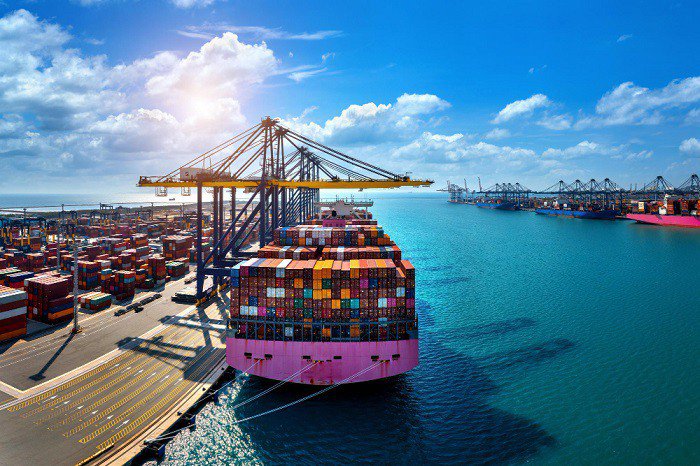
Sea freight shipping is important in international trade because it transports goods worldwide. Ocean freight shipping is a cost-effective and dependable solution for businesses transporting large quantities of goods. However, importers and exporters must know the various charges associated with sea freight shipping to ensure accurate budgeting and smooth logistics operations.
This article will examine the most common local charges incurred in sea freight shipping and provide information on ocean freight rates, tracking, and overall charges.
Understanding Ocean Freight Rates
Ocean freight rates are the fees charged by shipping lines or freight forwarders for transporting cargo by sea. The shipping route, container size, weight, and type of goods transported influence these rates. Freight rates are typically expressed as a flat fee per container (Full Container Load, FCL) or as a cost per cubic meter (Less than Container Load, LCL). It should be noted that freight rates are subject to market fluctuations and can be influenced by global economic factors, fuel prices, and shipping service demand.
Local Charges in Sea Freight Shipping
- Origin Charges: These are levied at the port of origin to cover the costs of preparing the cargo for shipment. Documentation fees, customs clearance fees, inland transportation to the port, container packing and loading charges, and any other charges specific to the port or country of origin are examples of origin charges.
- Terminal Handling Charges (THC): THC is charges levied by terminal operators at the port of loading or discharge. These fees cover the costs of handling cargo at the terminal, including container loading and unloading, cargo storage, and security. THC varies depending on the container's size, weight, cargo type, and specific shipment terminal.
- Destination Fees: Destination fees are levied at the port of destination and cover the costs of transporting the cargo to its final destination. Examples are customs clearance fees, documentation fees, terminal handling fees at the destination port, and inland transportation from the port to the final delivery location.
- Demurrage and Detention Charges: Demurrage charges are incurred when the cargo exceeds the agreed-upon free time for using containers at the port. When containers are kept longer than the agreed-upon time for loading or unloading, detention fees are levied. These fees are intended to encourage the efficient use of containers and to reduce port congestion.
What is Ocean Freight Tracking?
Shippers and consignees can track the movement of their cargo throughout the shipping process using ocean freight tracking. Tracking can provide real-time updates on the shipment location, the estimated arrival time, and any delays or disruptions. Many shipping lines and freight forwarders provide online tracking systems through which users can access this information by entering a unique container or bill of lading number.
Tracking provides transparency and visibility, allowing businesses to plan their logistics and supply chain activities more effectively.
Managing Ocean Freight Charges
It is critical to consider the following factors when managing ocean freight charges:
- Open Lines of Communication: Maintain open lines of communication with your freight forwarder or shipping line to understand the breakdown of charges and avoid surprises. Seek clarification on any ambiguous terms or charges.
- Complete and Accurate Documentation: Ensure all shipping documentation is complete and accurate to avoid unnecessary delays or additional charges due to customs clearance issues.
- Cargo Consolidation: If you are shipping in small quantities, consider consolidating your cargo with other shipments to take advantage of lower LCL rates. This has the potential to reduce overall transportation costs.
- Optimal Container Utilization: Plan container loading and unloading efficiently to reduce demurrage and confinement fees. Proper coordination and timely cargo processing can help to avoid additional fees.
- Contract Negotiation: Consider negotiating long-term contracts with shipping lines or freight forwarders when dealing with regular shipments. This can provide rate stability and reduce the risk of unexpected price increases.
- Stay informed: Keep current on the latest shipping industry trends and developments. Keep up to date on the latest shipping industry trends and developments. Regulation changes, fuel prices, and geopolitical factors can all impact ocean freight rates and charges. Being informed allows you to modify your logistics strategies as needed.
Conclusion
Understanding the common local charges in sea freight shipping is critical for businesses involved in international trade. From origin charges to destination charges, each component contributes to the overall cost of shipping goods by sea. You can optimize your logistics operations, mitigate risks, and increase cost efficiency by becoming familiar with these charges and implementing effective management strategies.
Furthermore, ocean freight tracking systems give you visibility into your shipments, allowing you to plan and make better decisions. You can navigate the complexities of sea freight shipping and ensure a smooth and successful shipping experience by staying informed about industry trends and maintaining open communication with your service providers.
As with any aspect of international trade, consulting with experienced professionals or freight forwarders who can provide guidance tailored to your specific shipping needs is best. Businesses can reap the benefits of sea freight shipping while effectively managing the associated local charges with the right knowledge and proactive approach.





 Get instant quote
and compare offers in real time
Get instant quote
and compare offers in real time